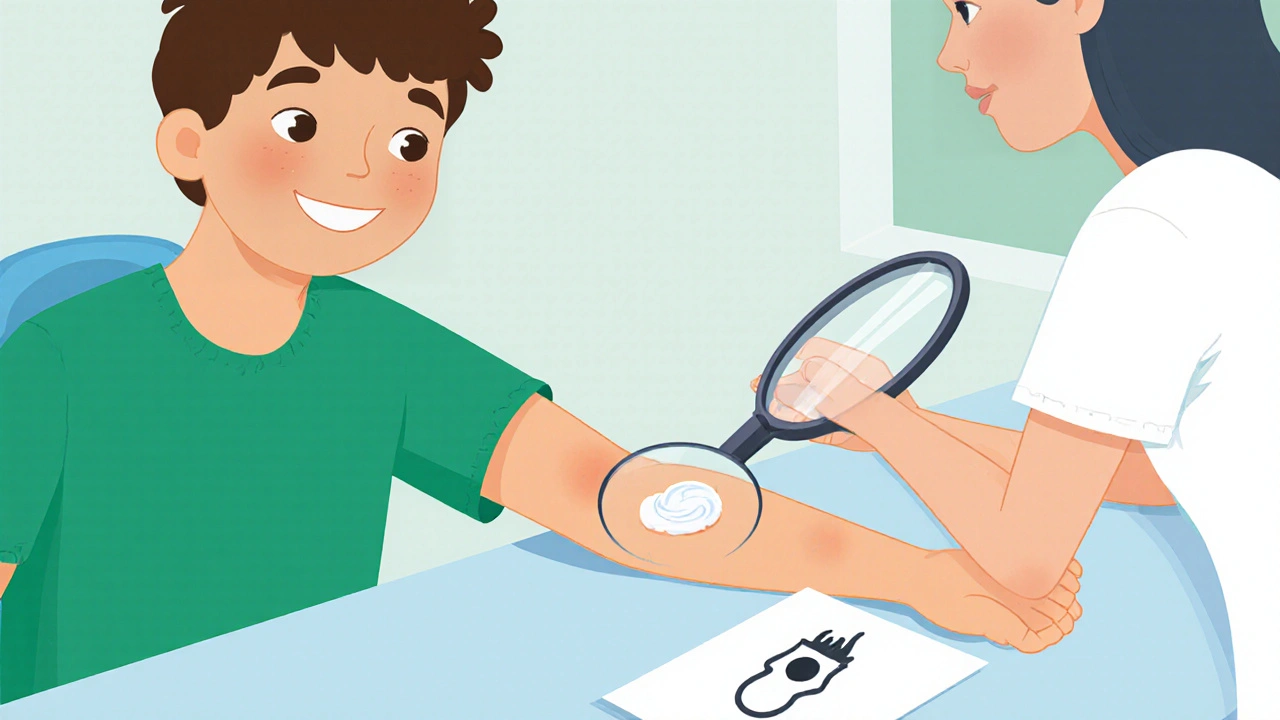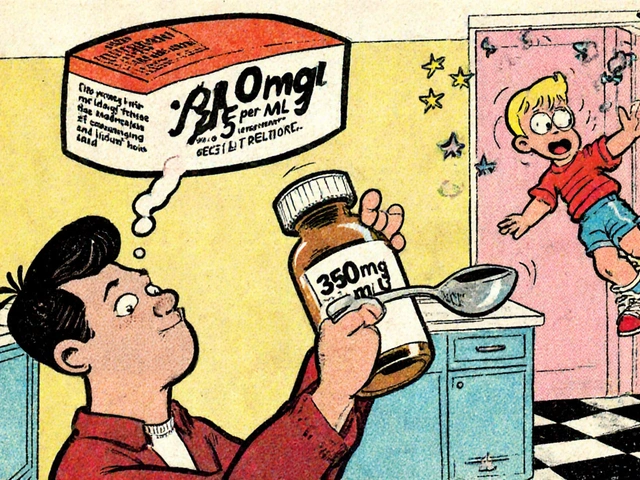
Eczema Tattoo Readiness Checker
Eczema Tattoo Readiness Checklist
Answer these key questions to determine if you're ready for tattooing with eczema:
Thinking about getting inked but wrestling with eczema? You’re not alone. Many people wonder whether their skin condition will ruin a tattoo or cause a flare‑up. This guide breaks down the science, the risks, and the practical steps you can take so you can decide if a tattoo is right for you-and how to care for it if you go ahead.
Understanding Eczema and Its Impact on Skin
Eczema is a chronic inflammatory skin condition that causes itching, redness, and dry patches. It affects about 10% of adults in the U.S., and the hallmark is a compromised skin barrier that lets irritants slip in more easily. When the barrier is weak, the skin loses moisture faster, leading to the characteristic flares.
Because eczema makes the skin more reactive, anything that punctures it-like a tattoo needle-can trigger a stronger immune response. Knowing how eczema behaves helps you gauge whether you’re in a good window to get inked.
How Tattoos Work and What They Require
Tattoo is a form of permanent body art created by inserting pigment into the dermis, the layer just below the epidermis. The process relies on sterile needles, high‑quality ink, and a clean environment to prevent infection.
The pigment, often called Ink, contains pigments, carrier liquids, and sometimes preservatives. In a healthy skin environment, the body’s immune cells encapsulate the pigment particles, locking them in place. When the skin is already inflamed or compromised, that immune response can become erratic, increasing the chances of scarring or allergic reactions.
Risks of Getting Inked with Eczema
- Increased irritation: The needle’s trauma can aggravate eczema, leading to prolonged redness and itching.
- Higher infection chance: A damaged barrier is less able to keep out bacteria, so post‑tattoo infections are more common.
- Allergic reactions: Some tattoo pigments trigger reactions that mimic eczema flare‑ups, making it hard to tell what’s causing the problem.
- Delayed healing: Eczema‑prone skin often takes longer to re‑epithelialize, extending the typical 2‑3 week healing window to 4‑6 weeks or more.
- Potential for scarring or pigment migration: Chronic inflammation can cause the ink to spread or form raised scar tissue, especially if you scratch frequently.

Preparing Your Skin Before a Tattoo
- Schedule a visit with a Dermatologist. A professional can assess current eczema activity, prescribe a short‑term steroid or calcineurin inhibitor cream to calm the skin, and give clearance for the procedure.
- Patch‑test the ink. Ask the artist to provide a tiny swatch of the exact pigment you’ll receive. Apply it on a non‑affected area and wait 48‑72hours. If there’s no extra redness or itching, you’re likely safe.
- Hydrate the skin 48hours before the session. Use a fragrance‑free, ceramide‑rich moisturizer to boost the skin barrier. Consistent moisturization helps the skin tolerate the needle trauma better.
- Avoid scratching or picking at eczema patches for at least a week before the appointment. Even a tiny break can become an entry point for bacteria during tattooing.
- Pick an experienced artist who’s familiar with sensitive skin. A skilled professional will adjust needle depth and pressure to minimize unnecessary damage.
Aftercare Strategies Tailored for Eczema
The first two weeks are critical. Below is a side‑by‑side look at standard aftercare versus eczema‑focused care.
| Step | Normal Skin | Eczema‑Prone Skin |
|---|---|---|
| Cleaning | Gentle fragrance‑free soap, 2‑3 times/day | Same soap, but pat dry gently; avoid rubbing |
| Moisturizing | Light, non‑comedogenic ointment | Apply a thick, fragrance‑free barrier ointment (e.g., petrolatum) after each cleaning, then switch to a ceramide‑rich moisturizer after 48hours |
| Anti‑inflammatory | Usually none needed | Use a prescribed low‑potency topical steroid (hydrocortisone 1%) for the first 3‑5days if redness spikes, under doctor guidance |
| Sun exposure | Wait 2‑3 weeks, then use SPF30+ | Same rule, but keep the tattoo covered longer (up to 4‑6 weeks) to prevent flare‑ups from UV‑induced irritation |
| Scratching/Itching | Resist the urge | Apply a cool compress and a thin layer of hypoallergenic anti‑itch cream (e.g., calamine) instead of scratching |
Key takeaways: keep the area moisturized, use doctor‑approved anti‑inflammatory creams only when needed, and avoid anything that could dry out the skin further.
When to Say No: Red Flags and Contraindications
- Active flare‑up: If your eczema is currently red, oozing, or intensely itchy, postpone the tattoo until the skin is calm for at least two weeks.
- History of allergic reactions to pigments: If you’ve reacted to certain colors before (especially reds or yellows), avoid those shades or opt for black/grey only.
- Severe eczema on the intended area: Thickened, lichenified skin (very rough or scaly) often heals poorly and may not hold ink evenly.
- Compromised immune system: Conditions like HIV, chemotherapy, or systemic steroids can impair healing and raise infection risk.
- Recent use of topical steroids on the site: Steroid‑laden skin can be more fragile; give it a week off after stopping the cream before tattooing.
Alternatives and Modifications
If the risks feel too high, consider these options that still let you express yourself without permanent ink:
- Temporary tattoo pens: Cosmetic‑grade, hypoallergenic ink that washes off after a few days.
- Henna or vegan “black” ink: Natural plant‑based dyes that sit on the epidermis, not the dermis, and are generally gentler on eczema.
- Micro‑blading or scalp pigment: Very fine, shallow pigment work often used for brows; it’s less invasive than traditional tattoos.
- Digital body art: Augmented‑reality apps let you “wear” a design on your phone screen without any skin contact.
These alternatives let you test a design’s look and feel before committing to a permanent piece.
Quick Checklist Before You Ink
- ✔️ Have you been flare‑free for at least 2 weeks?
- ✔️ Did you get a dermatologist’s sign‑off?
- ✔️ Have you done an ink patch test?
- ✔️ Is your chosen artist experienced with sensitive skin?
- ✔️ Do you have a stocked aftercare kit (fragrance‑free soap, barrier ointment, prescribed steroid, cool compresses)?
Cross these off, and you’ll feel a lot more confident walking into the studio.
Frequently Asked Questions
Can I get a tattoo while I’m using a prescription eczema cream?
It depends on the cream. Thin‑film steroids (like hydrocortisone 1%) are usually okay if you stop them a few days before the session. Thick ointments or calcineurin inhibitors can make the skin too slippery for the needle, so pause them 24‑48hours before the appointment. Always confirm with your dermatologist.
What tattoo colors are safest for eczema‑prone skin?
Black, gray, and some darker blues tend to have fewer volatile organic compounds than bright reds or yellows. However, the safest route is to ask the artist for a pigment safety sheet and request a patch test for any color you plan to use.
How long should I wait after a flare before getting tattooed?
Aim for at least a 14‑day clear period. This gives the skin time to rebuild its barrier and reduces the chance that the tattoo will reignite a flare.
Is it possible for a tattoo to actually improve my eczema?
Generally no. Tattoos are a form of skin trauma, which can trigger inflammation. Some anecdotal reports claim a “post‑tattoo skin reset,” but there’s no clinical evidence. If you’re hoping for symptom relief, stick with proven treatments.
What signs indicate an infection after a tattoo for someone with eczema?
Look for increasing redness beyond the tattoo outline, swelling, warmth, pus, or fever. Because eczema already causes itch and redness, a sudden sharp pain, a foul odor, or spreading rash should prompt an immediate visit to a healthcare professional.





